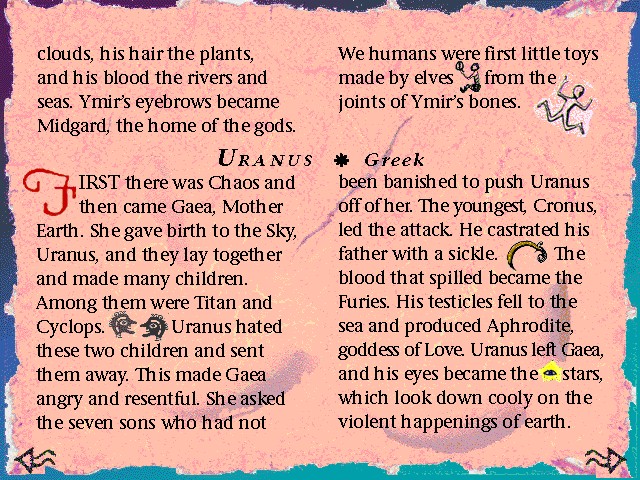Legend Theory

Option 3: The Legend Theory
Positive supports for this theory:
+1 It sounds like a myth/legend.
Problems with +1
It does not sound like a myth/legend, according to literature scholars. Read Matthew, Mark, Luke, or John (the Gosples, or “good news”, in the Bible), and see for yourself. Myths, legends, fables, etc., have certain characteristics, like occurring in the murky, vague past, no checkable events to verify core claims, no historical details that scholars initially doubt, but later find to be true, etc. On the other hand, the biblical accounts have all the characteristics of the type of literature known as historical narrative (giving an account of what happened). I understand that appealing to what the “scholars” think doesn’t necessarily prove anything, but you can simply check this yourself. Read a myth, for example, Babylonian myths, or read the Vedas (Hinduism), or the paragons of thinking, the Greeks is given below, and then read the Bible.

Or compare the Bible to the Gnostic Gospels, which were written as a reaction against Christianity about 100-300 years after Jesus. The Gnostics took things they liked, such as a blend of Jesus and eastern religious ideas, and added what they claimed was “secret knowlegde.” Followers of Gnosticism put out a number of books and attemted to capitalize on the authority of those connected with Jesus, deceptively calling their books the Gospel of Peter, Gospel of Thomas, Gospel of Mary, etc. This fabrication has been exposed by literature scholars, along with historical errors and adding legendary content, such as stating that when Jeuss came out of the tomb he was so tall his head was in the clouds, and the cross also floated out of the tomb, and the cross was talking.
The only similarity with myths or legend is the inclusion of a supernatural God and miracles, which does make it sound like some myths we do have, but does not make the account myth/legend. If it did, then modern physics books must be myth too, because the necessity of a supernatural cause of the Universe (something outside all matter, energy, space, and time of nature) is accepted. There are many claims that may surprise, or shock us, but reality does not depend on our limited understanding, but will depend on and be supported as the eviddence comes in. And for those who are uncomfortable with the idea of “miracles,” see the article Miraculous Misunderstandings in the Frequently Asked Questions (FAQs) folder.
Why the legend option does not work:
− 1 No supportive evidence
If you believe it is legend, why? The scholarship does not accept the legend theory, so if you do, you need to have the appropriate evidence.
- 2 Fails to explain any of the minimal facts
- 3 The legend option has already been directly eliminated by the disciples
The disciple Peter stated, “We did not follow cleverly invented stories when we told you about the power and coming of our Lord Jesus Christ, but we were eyewitnesses of his majesty.” (2 Peter 1:16) He could be lying about being eyewitnesses, but this removes legend as an option – you are inescapably back to Liar Theory.
- 4 No time for legend to develop
The creeds (belief statements) cover the core facts about Jesus, and allow no time for legend to be added. Even the NT was written when witnesses were still alive, and in a culture really non-conducive to legend building, providing no time or conditions that legends typically need to arise from in order to begin their obfuscation of the facts.
- 5 Endless other problems
- The standard historical method places the burden of proof on the historian to show the written historical account is unreliable. The NT claims to give an historical account, and reads that way. So the rule of thumb is: if the author seems to attempt to communicate history, assume it is, unless you have good evidence it is not historical. We have amazing and continually growing evidence of the accuracy of the Bible, so much so that historians and archeologists rely on the Bible to direct them to new finds.
- The biblical account has been scoured over with the finest-toothed combs, by far the most read and studied in all history – and what do we find – a trend. The more information we gather, the more the biblical record is verified at the expense of critics.
- There is much more, but any one of these reasons is alone fatal to the legend theory, which is why no one familiar with the evidence attempts to use this theory.
The Bottom-Line
- The Legend Theory does not have supportive evidence
- Fails miserably in explaining even the minimal facts
- Cannot help but fall into the Liar Theory
- Requires unrealistic and unsupported beliefs – it does not work – you would be unreasonable and against the scholarship and common sense to believe it.
